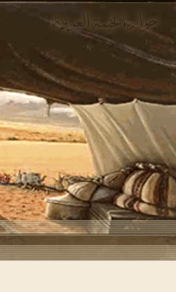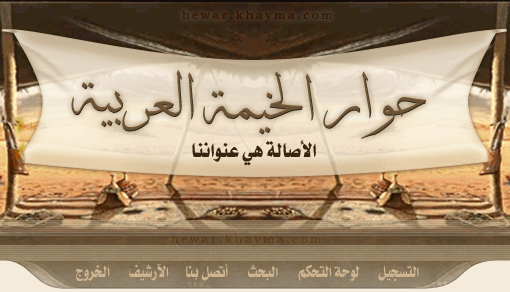|
مشرفة Non-Arabic Forum واستراحة الخيمة
تاريخ التّسجيل: Apr 2008
الإقامة: المغرب
المشاركات: 2,102
|
 From ” Three Days to See “ by Helen Keller
From ” Three Days to See “ by Helen Keller
 
she is one of my best writers and because i loved her so much
i want you to share with me one of her favourite thoughts
cause as i read what she wrote i get so deep feelings
and tears blurred my eyes
cause she's so sweet woman, so wonderful, so great
this famous woman who faced three huge obstacles: blindness, deafness
and no ability to speak.Yet wasn’t deterred in the slightest for her
yearning to learn.
I highly recommend to anyone who would like to change his
life for better to see how great she was that girl who battles
the odds to reach her dreams
thank you helen for your sweet and Unforgettable human courage
i love you so much
this is the text, just open your heart and read it carefully and you
would emphasize sharply the values of life.
” Three Days to See
by Helen Keller
 
Sometimes I have thought it would be an excellent rule to live each day as if we
should die to-morrow. Such an attitude would emphasize sharply the values of life. We
should live each day with a gentleness, a vigor, and a keenness of appreciation which
are often lost when time stretches before us in the constant panorama of more days
and months and years to come. There are those, of course, who would adopt the
epicurean motto of ‘Eat, drink, and be merry,’ but most people would be chastened
by the certainty of impending death .
 
In stories, the doomed hero is usually saved at the last minute by some stroke of
fortune, but almost always his sense of values is changed. He becomes more
appreciative of the meaning of life and its permanent spiritual values. It has often
been noted that those who live, or have lived, in the shadow of death bring a mellow
sweetness to everything they do.
 
Most of us, however, take life for granted. We know that one day we must die, but
usually we picture that day as far in the future. When we are in buoyant health, death
is all but unimaginable. We seldom think of it. The days stretch out in an endless vista.
So we go about our petty tasks, hardly aware of our listless attitude toward life.
The same lethargy, I am afraid, characterizes the use of all our facilities and senses.
Only the deaf appreciate hearing, only the blind realize the manifold blessings that lie
in sight. Particularly does this observation apply to those who have lost sight and
hearing in adult life. But those who have never suffered impairment of sight or hearing
seldom make the fullest use of these blessed faculties. Their eyes and ears take in all
sights and sounds hazily, without concentration and with little appreciation. It is the
same old story of not being grateful for what we have until we lose it, of not being
conscious of health until we are ill.
 
I have often thought it would be a blessing if each human being were stricken blind
and deaf for a few days at some time during his early adult life. Darkness would make
him more appreciative of sight; silence would teach him the joys of sound.
Now and then I have tested my seeing friends to discover what they see. Recently I
was visited by a very good friend who had just returned from a long walk in the
woods, and I asked her what she had observed. ‘Nothing in particular,’ she replied. I
might have been incredulous had I not been accustomed to such responses, for long
ago I became convinced that the seeing see little.
 
How was it possible, I asked myself, to walk for an hour through the woods and see
nothing worthy of note? I who cannot see find hundreds of things to interest me
through mere touch. I feel the delicate symmetry of a leaf. I pass my hands lovingly
about the smooth skin of a silver birch, or the rough, shaggy bark of a pine. In spring I
touch the branches of trees hopefully in search of a bud, the first sign of awakening
Nature after her winter’s sleep. I feel the delightful, velvety texture of a flower, and
discover its remarkable convolutions; and something of the miracle of Nature is
revealed to me. Occasionally, if I am very fortunate, I place my hand gently on a small
tree and feel the happy quiver of a bird in full song. I am delighted to have the cool
waters of a brook rush through my open fingers. To me a lush carpet of pine needles
or spongy grass is more welcome than the most luxurious Persian rug. To me the
pageant of seasons is a thrilling and unending drama, the action of which streams
through my finger tips.
 
At times my heart cries out with longing to see all these things. If I can get so much
pleasure from mere touch, how much more beauty must be revealed by sight. Yet,
those who have eyes apparently see little. The panorama of color and action which
fills the world is taken for granted. It is human, perhaps, to appreciate little that which
have and to long for that which we have not, but it is a great pity that in the world of
light the gift of sight is used only as a mere convenience rather than as a means of
adding fullness to life.
If I were the president of a university I should establish a compulsory course in ‘How to
Use Your Eyes’. The professor would try to show his pupils how they could add joy to
their lives by really seeing what passes unnoticed before them. He would try to awake
their dormant and sluggish faculties.
- From ” Three Days to See “ by Helen Keller
 
__________________
" كان بودي أن آتيكم ,, ولكن شوارعكم حمراء ,,
وأنا لا أملك إلا ثوبي الأبيض ",,
* * *
دعــهــم يتــقــاولــون
فـلــن يـخــرج الـبحــر
عــن صمته!!!
|











